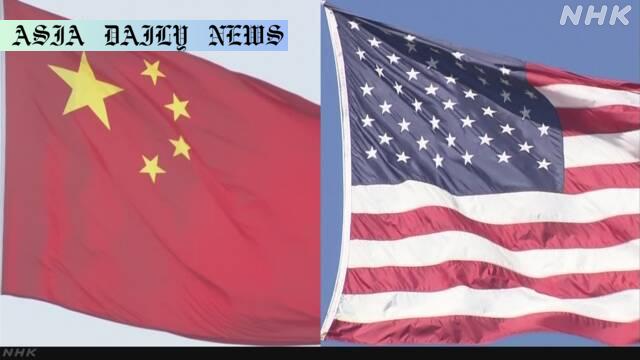Trade Agreement: China’s Commerce Ministry rejects allegations of trade violation and accuses the US of discriminatory policies.
- Trade Agreement allegations by Trump led to strong pushback from China.
- China accused the US of introducing discriminatory measures post-agreement.
- Beijing asserted that it actively upheld the Geneva agreement.

Background on the Trade Agreement
In May, a significant trade agreement was reached during diplomatic discussions in Geneva between the United States and China. This agreement aimed to ease escalating tensions by reducing additional tariffs that were imposed by both nations amidst intensifying economic conflicts. Both countries agreed to a collective reduction of 115 percentage points, a move intended to stabilize trade relations. However, this agreement has since sparked controversy, as accusations of violations have recently emerged, reigniting disputes between the world’s largest economies.
The Allegations and China’s Rebuttal
President Donald Trump claimed on social media that China had breached the trade deal. These accusations included allegations of Beijing obstructing exports of rare earths and not complying with terms agreed upon in Geneva. In response, the Chinese Commerce Ministry issued a statement denouncing Trump’s claims as “groundless.” The Ministry emphasized that China has consistently adhered to the agreement in a responsible manner, while accusing the United States of acting in bad faith by implementing discriminatory policies against China.
US-China Relations Amid Discriminatory Policies
China’s statement also highlighted additional challenges imposed by the US, such as a plan to revoke the visas of Chinese students. Beijing argued that such actions significantly undermined the rights of Chinese citizens and were in violation of international norms. These measures, coupled with the accusations of violating the Geneva accord, showcase growing distrust between the two nations. China warned that it would implement strong countermeasures if the United States continued to disregard its interests.
Potential Implications of the Dispute
Escalations in trade disagreements could severely impact global markets, given the economic weight of both countries. The ongoing tussle threatens to derail any progress made toward fostering stable trade relations. It also jeopardizes numerous industries reliant on harmonious trade, such as technology and manufacturing. Global leaders and organizations will likely call for further diplomatic engagements to alleviate tensions, though achieving compromise appears increasingly challenging.



Commentary
Harmful Consequences of Escalating Friction
The ongoing disputes between China and the United States regarding the Geneva trade agreement are emblematic of broader geopolitical and economic issues. It is concerning to see how mistrust can overshadow previously agreed-upon terms of cooperation. Trump’s claims, whether justified or not, have undeniably intensified tensions, potentially leading to irreversible damage to the global trade system. Such cycles of accusation and counter-accusation diminish the faith of multiple stakeholders, including industries and allied nations, vested in both economies’ stability.
Broader Implications for International Relations
Beyond the immediate economic ramifications, the dispute exposes deteriorating diplomatic relations between two global superpowers. Washington’s measures, such as the proposed visa revocations for Chinese students, seem to fuel personal and systemic grievances. On China’s part, its firm rebuttal signals a willingness to stand its ground. These dynamics suggest that both nations are prioritizing national interests over global harmony, a stance that could hinder collaborative efforts on critical global challenges, such as climate change and health crises.
Finding Common Ground for a Better Future
While the current scenario appears bleak, opportunities for resolution remain. It is imperative for both sides to re-engage in constructive dialogue, prioritize mutual respect, and uphold agreements with sincerity. The global economy, still recovering from the pandemic, cannot afford prolonged disruptions. International stakeholders, including the World Trade Organization, must step in to mediate and ensure accountability. One hopes that this trade dispute ultimately serves as a reminder of the importance of diplomacy and adherence to commitments.